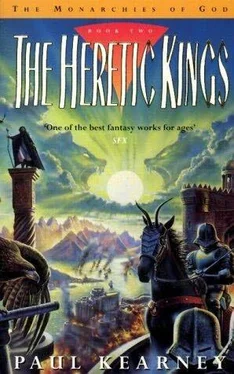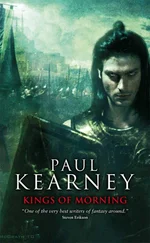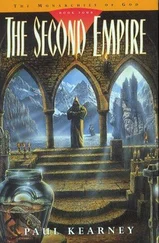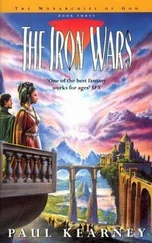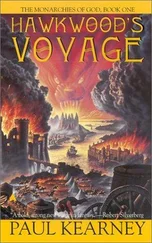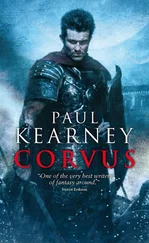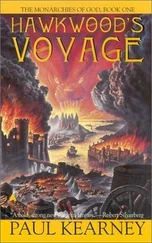Paul Kearney - The Heretic Kings
Здесь есть возможность читать онлайн «Paul Kearney - The Heretic Kings» весь текст электронной книги совершенно бесплатно (целиком полную версию без сокращений). В некоторых случаях можно слушать аудио, скачать через торрент в формате fb2 и присутствует краткое содержание. Жанр: Фэнтези, на английском языке. Описание произведения, (предисловие) а так же отзывы посетителей доступны на портале библиотеки ЛибКат.
- Название:The Heretic Kings
- Автор:
- Жанр:
- Год:неизвестен
- ISBN:нет данных
- Рейтинг книги:3 / 5. Голосов: 1
-
Избранное:Добавить в избранное
- Отзывы:
-
Ваша оценка:
- 60
- 1
- 2
- 3
- 4
- 5
The Heretic Kings: краткое содержание, описание и аннотация
Предлагаем к чтению аннотацию, описание, краткое содержание или предисловие (зависит от того, что написал сам автор книги «The Heretic Kings»). Если вы не нашли необходимую информацию о книге — напишите в комментариях, мы постараемся отыскать её.
The Heretic Kings — читать онлайн бесплатно полную книгу (весь текст) целиком
Ниже представлен текст книги, разбитый по страницам. Система сохранения места последней прочитанной страницы, позволяет с удобством читать онлайн бесплатно книгу «The Heretic Kings», без необходимости каждый раз заново искать на чём Вы остановились. Поставьте закладку, и сможете в любой момент перейти на страницу, на которой закончили чтение.
Интервал:
Закладка:
But they both remained prone in the drift which had come close to burying them. Their clothes had stiffened on their backs to the consistency of armour, and they no longer had any feeling left in their extremities. Worse, white patches of frostbite discoloured their faces and ears.
“We’re finished,” Albrec moaned. “God has abandoned us.”
The wind had dropped, and they lay on their backs in the snow staring up at the vast vault of the star-crowded night sky. Beautiful and pitiless, the stars were so bright that they cast faint shadows, though the moon had not yet risen.
Far off the two clerics heard the forlorn howl of a solitary wolf, come down out of the terrible winter heights of the Cimbrics seeking food.
Another answered it, and then there were more. A pack of them off in the night, calling to one another in some unfathomable fellowship.
Albrec was strangely unafraid. I am dying, he thought, and it does not matter.
“Sailors believe that in oyvips live the souls of lost mariners who drowned in a state of sin,” the little monk told Avila, remembering his childhood on the Hardic Sea.
“What’s an oyvip?” Avila asked, his voice a light feather of a thing balanced on his lips, as though his lungs were too racked with pain to give it depth.
“A great, blunt-nosed fish with a kindly eye and a habit of following ships. A happy thing, always at play.”
“Then I envy those lost souls,” Avila breathed.
“And woodsmen,” Albrec went on, his own voice becoming slurred and faint. “They believe that in wolves abide the souls of evil men, and, some think, of lost children. They think that in the heart of the wolf lies all the darkness and despair of mankind, which is why shifters usually manifest as wolves.”
“You read too much, Albrec,” Avila whispered. “Too many things. Wolves are animals, mindless and soulless. Man is the only true beast, because he has the capacity not to be.”
They lay with the cold seeping into their bones like some slow, cancerous growth, staring up at the stark beauty of the stars. There was no longer any pain for them, or any hope of flight or life, but there was peace out here in the drifts, in the wild country of the Narian Hills where the Free Tribes had once roamed and worshipped their dark gods.
“No more philosophy,” Albrec murmured. The stars were winking out one by one as his sight darkened.
“Good night, Avila.”
But from his friend there was no reply.
The Fimbrian patrol came across them an hour later, drawn by the shadowed figures of the wolves who were gathering around them. The soldiers kicked away the beasts and found two clerics of Charibon lying stiff and cold in the snow with their faces turned up to the stars and their hands clasped together like those of two lost children. The soldiers had to chip them free of the frozen drift with their swords. The pair had on their bodies the marks of violence and rough travel, but their faces were peaceful, as serene as the countenance of a sculpted saint.
The sergeant in charge of the patrol ordered them wrapped in cloaks and carried back to camp. The patrol followed his orders, picked up the bodies and started at the double back to where the campfires of the Fimbrian army glimmered red and yellow in the starlight, less than a mile away.
The wolves watched them go in silence.
TWENTY-THREE
They had made good time, marching sixty leagues in eleven days. Corfe had never seen anything quite like his motley little army of savage tatterdemalions. They were eager, talkative, fiercely good-humoured. On leaving Torunn they had changed completely, and their column often rang out with tribal songs, ribald laughter. It was as if the city had placed some kind of sombre restraint on them, but now that they were out in open country, marching with swords slapping at their thighs and lances in their hands, something in them took wing. They were undisciplined, yes, but they were more enthusiastic than any other soldiers Corfe had known. It was as if they thought they were marching south to take part in some manner of festival.
He put his views to Marsch one evening as they sat by the campfire, shivering in their threadbare blankets and watching flurries of snow lit up by the flames wheeling feather-like out of the darkness beyond. Almost a third of the men were barefoot, and many had no adequate covering to keep out the cold, but the bristling crowds about the other campfires were humming with low talk, like a summer garden alive with bees.
“Why do they seem so happy?” Corfe asked his newest ensign.
The huge tribesman wiped his nose on his blanket, shrugging. “They are free. Is that not enough to make a man happy?”
“But they are marching south to fight a battle which has nothing to do with them. Why do they seem so eager to do it?”
Marsch looked at his commander strangely. “How often do the causes for which men fight mean anything to them? For my people, the Felimbri, war is our life. It is the means by which a man advances himself in the esteem of his comrades. There is no other way.”
Ensign Ebro, who was sitting close by with a fur cape clutched about his shoulders, snorted with contempt.
“That is the reasoning of a primitive,” he said.
“We are all primitives, and always will be,” Marsch said with unusual mildness. “If men were civilized truly, then they would not kill each other. We are animals. Something in us needs to fight in order to prove we are alive. My men have been chattels, beasts harnessed for brute labour. But now they bear the weapons of free men, and they are to fight like free men, in open contest. It matters not who they fight or where, or for what.”
“The philosopher savage.” Ebro laughed.
“So there is no cause needed,” Corfe said.
“No. A man advances himself by making subject other men, either by killing them or so dominating them that they will not dare to challenge his word. Thus are kings made-among my people, at least.”
“And what were you before the galleys claimed you, Marsch?” Corfe asked quietly.
The huge savage smiled. “I was what I still am, a prince of my people.”
Ebro guffawed, but Marsch ignored him as if he did not exist.
“You could kill your Torunnan officers here and now, and leave for home. No one could stop you,” Corfe said.
Marsch shook his head. “We have sworn an oath which we will not break. There is honour involved. And besides”-here he actually grinned at Corfe, showing square yellow teeth whose canines had been filed to sharp points-“we are interested to see how this colonel of ours will fare in open battle, with his Torunnan ways and his plain speaking.”
Then it was Corfe’s turn to laugh.
There was no chance of the column’s approach remaining a secret. Their appearance was so outlandish and unique that entire villages turned out at the side of the mud-deep roads to stare at them as they trudged past. The last few days were spent on short commons, as the Quartermaster-issued rations had run out and the men had to subsist on what they could glean from the surrounding countryside. Several cattle were quietly appropriated from awe-struck owners, but in general Corfe prevented any large-scale foraging because this was Torunna they were marching through, his own country, and also he wanted to make the greatest speed he could.
The men were marvellously fast marchers. Though their time in the galleys had blunted the fine edge of their fitness, building brute strength up in place of stamina, they were able to crack along at a fearsome pace, unhindered by an artillery train or baggage of any kind. It was all the three Torunnan officers in the column could do to keep up with their subordinates as they strode along with their helms slung at their hips and their lances resting on their powerful shoulders. Corfe was privately amazed. He had been brought up to believe that the tribes of the Cimbrics were degenerate savages, hardly worthy of attention from civilized men except when they became a nuisance with their raiding and brigandage. But now he was learning the truth of the affair, which was that they were natural-born soldiers. All they needed was a little discipline and leadership and he was sure they would acquit themselves well against any foe in the world.
Читать дальшеИнтервал:
Закладка:
Похожие книги на «The Heretic Kings»
Представляем Вашему вниманию похожие книги на «The Heretic Kings» списком для выбора. Мы отобрали схожую по названию и смыслу литературу в надежде предоставить читателям больше вариантов отыскать новые, интересные, ещё непрочитанные произведения.
Обсуждение, отзывы о книге «The Heretic Kings» и просто собственные мнения читателей. Оставьте ваши комментарии, напишите, что Вы думаете о произведении, его смысле или главных героях. Укажите что конкретно понравилось, а что нет, и почему Вы так считаете.
